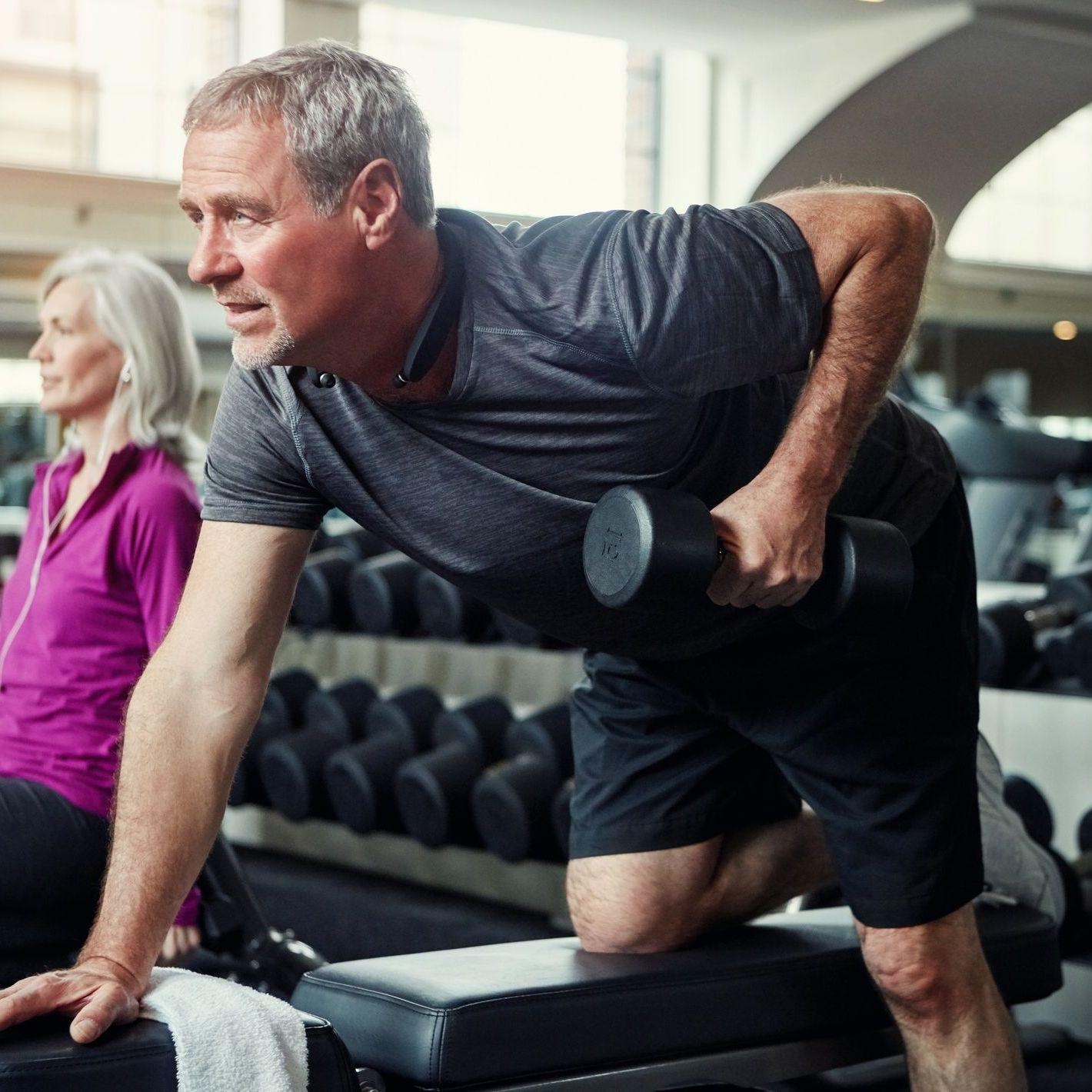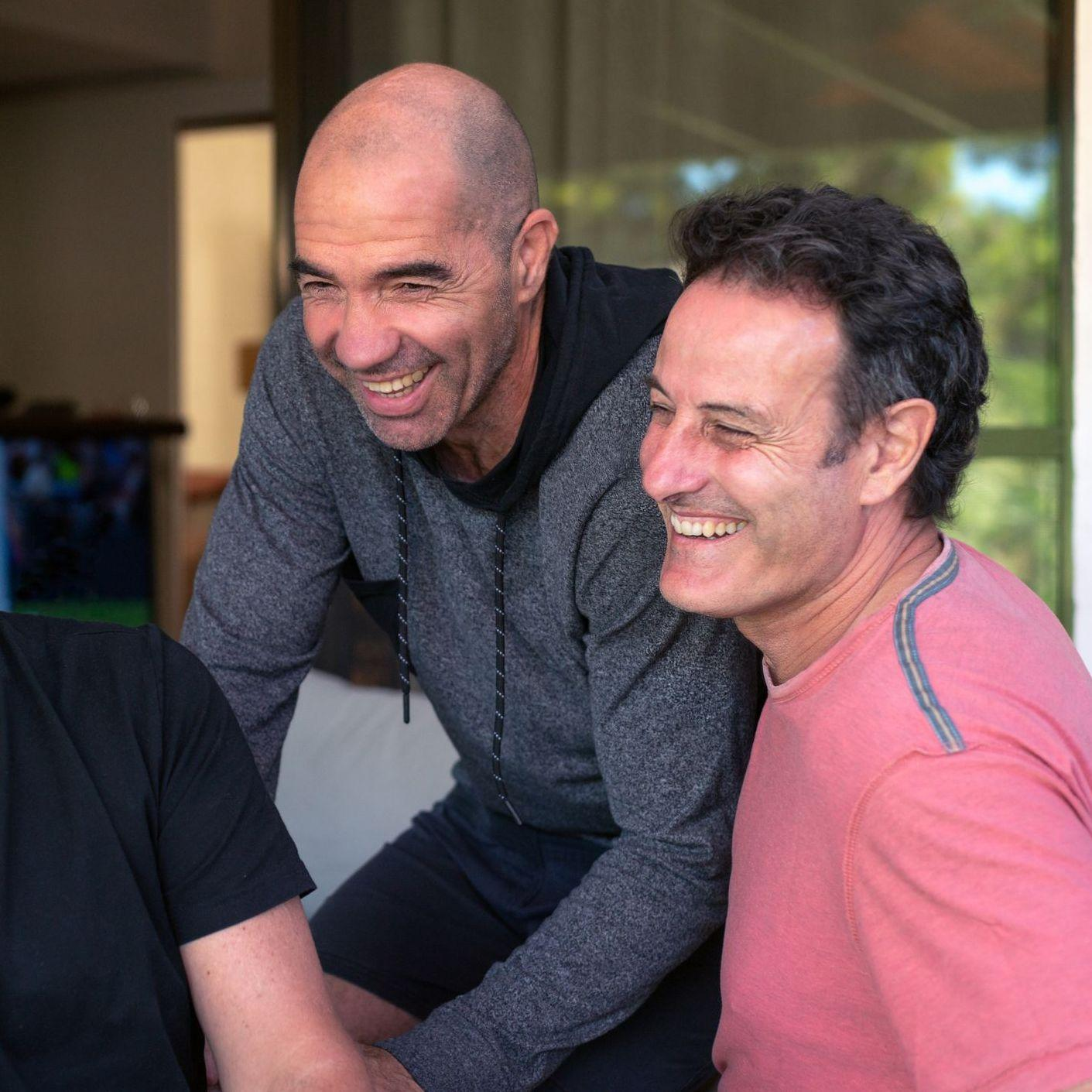Aging is a natural process, but losing your strength, drive, and clarity doesn’t have to be. As men age, testosterone levels gradually decline, influencing everything from physical stamina to emotional well-being. While this hormonal shift is part of the aging process, it’s not something you simply have to accept.

This Healthy Aging Month, we’re rethinking what it means to grow older. Let’s take a closer look at how testosterone impacts aging and what you can do to stay sharp, strong, and connected through the years.
What Is Testosterone’s Role in Aging?
Testosterone is the primary male sex hormone responsible for more than just libido. It supports:
- Muscle mass and strength
- Bone density
- Cognitive function
- Mood regulation
- Sexual function
These functions are often associated with vitality, so when testosterone levels begin to fall, it can feel like your “edge” is fading.
What Age Does Testosterone Decline?
Testosterone levels typically peak in the late teens to early 20s, then begin to decrease at an average rate of about 1% per year starting around age 30. However, not all men experience symptoms, and the age at which testosterone decline becomes noticeable varies based on genetics, lifestyle, and health conditions. This is known as andropause or “male menopause.”

The Truth About "Male Menopause"
The term “male menopause” is controversial and often misunderstood. Unlike the sudden hormone drop seen in female menopause, testosterone decline in men is gradual and individualized. The NHS notes that the term “male menopause” can be misleading, but late-onset hypogonadism, a medical term for low testosterone later in life, is a recognized condition that can cause symptoms such as:
- Low energy
- Reduced sex drive
- Erectile dysfunction
- Mood swings or depression
- Difficulty concentrating
- Decreased muscle mass and increased body fat
While these symptoms may overlap with normal aging, they’re not something men simply have to accept.
How Testosterone Affects Healthy Aging
According to a 2013 review article titled Andropause: Current concepts, low testosterone levels are linked to a variety of age-related health concerns, including:
- Decreased muscle strength and mobility: Muscle loss contributes to frailty and increased risk of falls in older age.
- Cognitive decline: Testosterone appears to support brain health, including memory and processing speed.
- Mood and motivation: Lower levels have been associated with symptoms of depression, apathy, and anxiety.
- Sexual health: Reduced testosterone can contribute to erectile dysfunction and decreased libido, impacting romantic relationships and emotional wellbeing.
These changes highlight how testosterone doesn’t just support youth; it plays a key role in how to age well.
When Is Low Testosterone a Problem?
Testosterone naturally decreases with age, but when levels fall below a certain point and symptoms affect daily life, it may be late-onset hypogonadism. This is typically diagnosed through a combination of blood tests and symptom evaluation.

It’s also important to rule out other causes of symptoms, such as sleep deprivation, chronic illness, or mental health issues. That’s why a full medical evaluation is essential before jumping to conclusions.
Strategies for Healthy Aging and Hormone Support
Healthy aging is a lifelong process, and your lifestyle plays a critical role in supporting testosterone production, physical strength, cognitive sharpness, and emotional well-being.
1. Move Your Body Daily
Physical activity is one of the most powerful tools for aging well. Regular movement helps preserve muscle mass and support cardiovascular health, and resistance training in particular helps preserve testosterone levels and maintain muscle mass.

The National Institute on Aging (NIH) recommends at least 150 minutes per week of moderate-intensity aerobic activity, plus strength training at least twice a week to maintain mobility and metabolic function.
Try:
- Walking briskly for 30 minutes, 5 days a week
- Strength training with resistance bands or weights
- Activities that improve balance (like yoga or tai chi)
2. Prioritize Sleep
Lack of sleep can suppress testosterone levels and impair memory, mood, and immunity. As men age, sleep disruptions may become more common, so quality sleep must be prioritized.
- Aim for 7 to 9 hours of sleep each night
- Keep a consistent sleep-wake cycle
- Avoid screens and caffeine before bed
- Create a dark, quiet sleep environment
According to the NIH, older adults with sleep problems are more likely to suffer from chronic diseases, and optimizing sleep is linked to better overall health and longer lifespan.
3. Eat for Hormonal Health
A balanced diet helps prevent chronic disease, maintain healthy weight, and support hormonal health. While no food boosts testosterone instantly, the right nutrients support hormone production and regulation.
- Zinc (found in red meat, shellfish, seeds)
- Magnesium (spinach, almonds, beans)
- Vitamin D (fatty fish, fortified dairy, and sunshine)
4. Stay Socially and Emotionally Engaged
Social isolation, stress, and depression can impact overall health.

NIH research shows that staying socially active and connected is strongly linked to longer life, better immune function, and reduced risk of cognitive decline.
Stay engaged by:
- Scheduling regular time with friends or family
- Joining a men’s group, club, or volunteer organization
- Seeking therapy or support groups when needed
5. Keep Your Mind Active
According to the NIH, staying mentally engaged through hobbies and learning supports cognitive longevity and may reduce the risk of decline over time. Mental stimulation may not raise testosterone, but it does support the sense of vitality and purpose that’s often diminished when hormones decline.
Try:
- Learning a new skill or language
- Reading books, doing puzzles, or playing strategy games
- Challenging your brain with hobbies (e.g., woodworking, music, cooking)
6. Get Regular Checkups
Routine health screenings become even more important with age. Regular blood work can help identify early signs of chronic disease before symptoms escalate. Plus, asking for a men’s health panel specifically can help determine if low testosterone may be contributing to your symptoms.
Talk to your doctor if you’re experiencing:
- Fatigue
- Low sex drive
- Mood changes or brain fog
- Loss of strength or endurance
You can also click here to order an at-home men’s health testing kit directly from us.
Should You Consider Testosterone Therapy?
Testosterone Replacement Therapy (TRT) may be an option for men with confirmed low testosterone and persistent symptoms. According to Andropause: Current concepts, TRT has been shown to improve muscle mass, sexual function, mood, and quality of life in appropriately selected individuals.
However, TRT is not a one-size-fits-all solution. It requires ongoing monitoring and should be prescribed by a provider who understands the balance between benefit and risk.
Rethinking Aging and Masculinity
Too often, symptoms of aging are dismissed as “just getting older.” But there’s a difference between normal aging and hormonal imbalance. Supporting testosterone doesn’t mean chasing youth; it means making empowered choices that support your health, energy, and relationships over time.
You don’t need to “power through” fatigue, fog, or frustration. With the right insights and support, you can age on your terms.
If you're wondering whether low testosterone could be affecting your energy, strength, or confidence, click here to order an at-home men’s health panel today.
Want more information on men’s health and testosterone? Sign up for our newsletter to get regular insights sent straight to your inbox.
.svg)


.svg)






